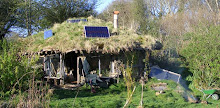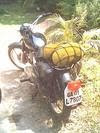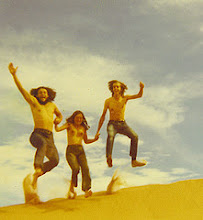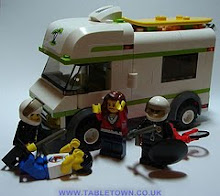19/02/2011
17/02/2011
may day may day
any peeps who havent joined this wee haven then please do ,your support encourages me to continue tales of sailing tramp A HAVEN FOR FREAKS
15/02/2011
14/02/2011
11/02/2011
YOU GOTTA LOVE TRAMPS ,COME ON PEOPLE GIVE SOME LOVE TO A TRAMP TODAY
Actually to me it seems that the average tramp on the street usually has in general got far more self respect than the working masses, the tramps downfall is that he’s unable to accept shit from the system and knows his true value as a person something everyday people don’t seem to value anymore that of which is not associated with assets and financial success, the tramps downfall is that he unable to bow like a dog and be part of capitalisms social hierarchy
05/02/2011
Got A Light?
Christopher Sandberg, 34, pleaded guilty to arson by criminal negligence after police found him sitting in his truck in Regina, Sask., Canada, with a propane canister. Police know Sandberg as a "huffer" -- he's addicted to breathing propane. As officers were talking with him, Sandberg lit a cigarette; the resulting explosion sent both officers flying. They weren't injured, but Sandberg suffered second-degree burns over more than 10 percent of his body. After his arrest, Sandberg was released on bail on the condition that he not possess any sort of pressurized canister, but he was found passed out in a park a month later, with a propane bottle next to him. His attorney pleaded for probation so Sandberg can overcome "all of his addictions" -- especially propane and cigarettes -- but the judge ordered him to jail for 14 months. (Regina Leader-Post) ...Sentencing Guidelines: Cigarette addiction: shrug. Propane addiction: probation. Simultaneous propane and cigarette addictions: jail.
Christopher Sandberg, 34, pleaded guilty to arson by criminal negligence after police found him sitting in his truck in Regina, Sask., Canada, with a propane canister. Police know Sandberg as a "huffer" -- he's addicted to breathing propane. As officers were talking with him, Sandberg lit a cigarette; the resulting explosion sent both officers flying. They weren't injured, but Sandberg suffered second-degree burns over more than 10 percent of his body. After his arrest, Sandberg was released on bail on the condition that he not possess any sort of pressurized canister, but he was found passed out in a park a month later, with a propane bottle next to him. His attorney pleaded for probation so Sandberg can overcome "all of his addictions" -- especially propane and cigarettes -- but the judge ordered him to jail for 14 months. (Regina Leader-Post) ...Sentencing Guidelines: Cigarette addiction: shrug. Propane addiction: probation. Simultaneous propane and cigarette addictions: jail.
The reasons politicians lie is because the public doesn't want to hear the truth. People want to hear what they want to hear. When two candidates are running and one of the tells the truth and the other says what the public wants to hear, the one who says what the public wants to hear wins the election. Thus, and there are exceptions to this, if you want to win an election, you better start lying, because the guy who's telling you the truth doesn't have a chance
02/02/2011
Don't say that I will depart tomorrow --
even today I am still arriving.
Look deeply: every second I am arriving
to be a bud on a Spring branch,
to be a tiny bird, with still-fragile wings,
learning to sing in my new nest,
to be a caterpillar in the heart of a flower,
to be a jewel hiding itself in a stone.
I still arrive, in order to laugh and to cry,
to fear and to hope.
The rhythm of my heart is the birth and death
of all that is alive.
I am the mayfly metamorphosing
on the surface of the river.
And I am the bird
that swoops down to swallow the mayfly.
I am the frog swimming happily
in the clear water of a pond.
And I am the grass-snake
that silently feeds itself on the frog.
I am the child in Uganda, all skin and bones,
my legs as thin as bamboo sticks.
And I am the arms merchant,
selling deadly weapons to Uganda.
I am the twelve-year-old girl,
refugee on a small boat,
who throws herself into the ocean
after being raped by a sea pirate.
And I am the pirate,
my heart not yet capable
of seeing and loving.
I am a member of the politburo,
with plenty of power in my hands.
And I am the man who has to pay
his "debt of blood" to my people
dying slowly in a forced-labor camp.
My joy is like Spring, so warm
it makes flowers bloom all over the Earth.
My pain is like a river of tears,
so vast it fills the four oceans.
Please call me by my true names,
so I can hear all my cries and my laughter at once,
so I can see that my joy and pain are one.
Please call me by my true names,
so I can wake up,
and so the door of my heart
can be left open,
the door of compassion.
~Thich Nhat Hanh
even today I am still arriving.
Look deeply: every second I am arriving
to be a bud on a Spring branch,
to be a tiny bird, with still-fragile wings,
learning to sing in my new nest,
to be a caterpillar in the heart of a flower,
to be a jewel hiding itself in a stone.
I still arrive, in order to laugh and to cry,
to fear and to hope.
The rhythm of my heart is the birth and death
of all that is alive.
I am the mayfly metamorphosing
on the surface of the river.
And I am the bird
that swoops down to swallow the mayfly.
I am the frog swimming happily
in the clear water of a pond.
And I am the grass-snake
that silently feeds itself on the frog.
I am the child in Uganda, all skin and bones,
my legs as thin as bamboo sticks.
And I am the arms merchant,
selling deadly weapons to Uganda.
I am the twelve-year-old girl,
refugee on a small boat,
who throws herself into the ocean
after being raped by a sea pirate.
And I am the pirate,
my heart not yet capable
of seeing and loving.
I am a member of the politburo,
with plenty of power in my hands.
And I am the man who has to pay
his "debt of blood" to my people
dying slowly in a forced-labor camp.
My joy is like Spring, so warm
it makes flowers bloom all over the Earth.
My pain is like a river of tears,
so vast it fills the four oceans.
Please call me by my true names,
so I can hear all my cries and my laughter at once,
so I can see that my joy and pain are one.
Please call me by my true names,
so I can wake up,
and so the door of my heart
can be left open,
the door of compassion.
~Thich Nhat Hanh
01/02/2011
CCTV
Closed-circuit television cameras were first used in Germany in 1942 to remotely monitor the launch of V2 rockets. Since then, CCTVs have become one of the most contentious pieces of technology in public use. The government and law enforcement agencies claim the use of video monitoring technology can help reduce crime and improve public safety; critics argue that the cameras serve only to displace crime to unmonitored areas, and do not act as a deterrent. With more than four million CCTV units in the UK, the network of cameras captures the average person around 25 times a day.
RFID tags
Radio frequency identification chips are already widely used in supermarkets and shops for the purpose of stock control, but some people fear their use could be widened to monitor the habits and behaviour of ordinary citizens. At the moment, these tags, which are little bigger than a grain of sand, are embedded into pints of milk and library books. When paired with an RFID reader, the tags can help to provide detailed information about items, such as their location, or how many there are. Although most people are happy for RFID tags to be used in stores to monitor stock levels, they’re less happy about the idea of the chips still sending out a signal once they leave the shop. On a benign level, such tracking capabilities would mean a store would know that people in Hertfordshire prefer blue cashmere jumpers, while those in Aberdeen favour the brown versions. But on a more sinister level, it could also enable them to glean an unprecedented insight into our personal lives, and target their brands to us accordingly. To those people who fear a “surveillance culture”, the ability to tag and track everything from our food to our clothes would be the next step on an already slippery slope.
Closed-circuit television cameras were first used in Germany in 1942 to remotely monitor the launch of V2 rockets. Since then, CCTVs have become one of the most contentious pieces of technology in public use. The government and law enforcement agencies claim the use of video monitoring technology can help reduce crime and improve public safety; critics argue that the cameras serve only to displace crime to unmonitored areas, and do not act as a deterrent. With more than four million CCTV units in the UK, the network of cameras captures the average person around 25 times a day.
RFID tags
Radio frequency identification chips are already widely used in supermarkets and shops for the purpose of stock control, but some people fear their use could be widened to monitor the habits and behaviour of ordinary citizens. At the moment, these tags, which are little bigger than a grain of sand, are embedded into pints of milk and library books. When paired with an RFID reader, the tags can help to provide detailed information about items, such as their location, or how many there are. Although most people are happy for RFID tags to be used in stores to monitor stock levels, they’re less happy about the idea of the chips still sending out a signal once they leave the shop. On a benign level, such tracking capabilities would mean a store would know that people in Hertfordshire prefer blue cashmere jumpers, while those in Aberdeen favour the brown versions. But on a more sinister level, it could also enable them to glean an unprecedented insight into our personal lives, and target their brands to us accordingly. To those people who fear a “surveillance culture”, the ability to tag and track everything from our food to our clothes would be the next step on an already slippery slope.
Everyone needs power on the go at some point, in this day and age with all the new-fangled gadgetry that goes on it can get expensive.
Some clever chaps from Japan have come up with a way of turning your regular liquid excretions into a free source of energy!
These clever little batteries have been reported to last up to 10 years on one charge! Sadly, these are not yet available for sale
Some clever chaps from Japan have come up with a way of turning your regular liquid excretions into a free source of energy!
These clever little batteries have been reported to last up to 10 years on one charge! Sadly, these are not yet available for sale
Subscribe to:
Comments (Atom)















































